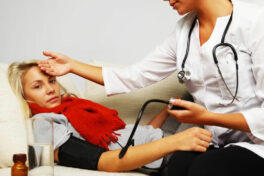
If you have recently experienced an episode of pneumonia, you'll likely be seeking out your pneumonia symptoms so you can figure out if your condition is improving. However, even though you may be having a bout with pneumonia, your pneumonia symptoms could still be signs of something more serious. Here are some of the most common pneumonia symptoms you'll need to look for.
Signs of pneumonia can range from mild to severe, depending on your general health and the cause of the infection. These may include: fever, up to 100 F. Stomach pain. Cold, hot, or sweaty palms.
If these symptoms are not similar to pneumonia, they may simply be symptoms of other medical conditions. For example, you may experience shortness of breath due to other medical conditions. In fact, it is important that if you have any respiratory problems, you see your doctor as soon as possible.
Because pneumonia is an infection, it is potentially life-threatening. It can spread from one part of the body to another and cause complications. In many cases, the symptoms of pneumonia resolve on their own within a few days after the first episode of pneumonia.
However, you should also keep in mind that if you are not feeling like yourself, you can consult your doctor about the symptoms of pneumonia. Pneumonia can be dangerous and can also cause serious illness.
There are things you can do to relieve the symptoms of pneumonia. If you've had an episode of pneumonia, you probably want to take steps to reduce the likelihood of complications.
The first and most important step is to stay hydrated. Drinking plenty of water can help to flush out the bacteria in your system so they can't grow. The more moisture they have to live in, the less likely you are to develop complications.
As long as you don't think you have pneumonia, your pneumonia symptoms won't go away on their own. So keep a close eye on them to watch for anything out of the ordinary.
If you have an episode of pneumonia, you'll want to make sure you're getting enough rest. This will keep your body healthy and help you fight off the bacteria. A good rule of thumb is to get eight hours of sleep every night. If you can't sleep that long, you should use a heating pad on a low heat setting to give you relief.
You'll also want to make sure your medication is effective. Sometimes people may have a better chance of overcoming pneumonia if they're prescribed antibiotics to clear up other issues.
Antibiotics will also help you manage your infections and help you recover faster as, well
Make sure that you're using the right treatment for your infection. There are many different kinds of antibiotics, so it's important to make sure you choose the right one for your particular condition. Many of them are designed specifically for bacterial infections.
Be sure that you follow the doctor's recommendations and that you're taking all the right precautions to fight off the infection. By doing this, you'll be able to avoid complications and hopefully, the development of a more serious problem.
If you think you may have a serious illness such as pneumonia, you should make an appointment with your doctor right away. It's important to be checked out by your doctor before you take any chances.
Once you know what you're dealing with, you'll be better able to understand what you need to do to treat your pneumonia symptoms effectively. You can also learn how to prevent the recurrence of the pneumonia itself.
To sum it up, pneumonia symptoms can be frustrating. If you don't understand them, they can become worse.